The first principle of my blog is “Creating Ecosystems of Success”. A key part is hearing the stories and experiences of successful people. Like many kids, I dreamt of an early dream of playing basketball. That dream didn’t reach fruition, but the lessons I learned playing in Section VI, the New York State Public High School Athletic Association’s western-most section, laid the groundwork for me to go on to further my education and start my science career.
I am working on a book project chronicling my early basketball journey entitled, The Engineers: A Western New York Basketball Story. As a part of the research for that project, I’ve interviewed numerous Section VI basketball players and coaches from my era. On May 10, 2018, I had the honor of interviewing Pat Monti – a Western New York basketball coaching legend and the Architect of the LaSalle basketball dynasty – arguably the most dominant high school basketball program ever to play in the Western New York region. From the late 1980s to the late 1990s LaSalle was consistently in position to advance to the Final Four in Glens Falls and won numerous state titles – Public and Federation. More fascinating than the actual dominance of the program itself though, is how it was built – with solid point guard play, defense, and a crafty, determined and highly competitive coaching staff.
In part one of this two-part interview, Coach Pat Monti discusses his background, and how he built the LaSalle basketball program. The pictures in this interview come from an archive of Western New York basketball assembled over the years from issues of the Buffalo News, the Rochester Democrat & Chronicle, and Sections V and VI playoff programs by my first Coach at Hutch-Tech High School, Dr. Ken Jones. Other articles and pictures were generously shared by Coach Pat Monti himself. Click on any of the images to enlarge them.
Anwar Dunbar: Thank you for this opportunity to interview you, Coach Monti. I’m working an ambitious writing project about my high school basketball experience – my first major success and failure lesson in life. While I didn’t play organized basketball beyond the 1993-94 school year, my high school experience at Hutch-Tech gave me the initial tools I needed to earn my Ph.D. in a STEM-field – not quitting during the hard times, dealing with adversity, finishing what I started, and so on.
In my project I also tell the story of the Section VI in that era – the prime of the LaSalle basketball dynasty – you can’t properly tell it without discussing the brown and gold – the LaSalle Explorers as you guys were the premiere program/team in our area for more than a decade. As a part of my research, I’ve reached out to several coaches and players, but talking to you may be my biggest interview of all. And with that we’ll start.
Where are you from and how did you get involved with the game of basketball?
Pat Monti: I’m from Syracuse, NY – born and raised. I’ve been playing basketball since I was about five years old. My Dad was a star athlete in all three of the major sports in high school before going to World War II, and I’ve always been into sports. I left Syracuse when I was 17 years old to attend Niagara University. Other than visiting family, I never went back. Right out of Niagara in 1968, I was offered a local teaching job. My wife to be was a junior at the time, so I took the job, and that’s basically where we spent the rest of our adult lives. We’ll be married 49 years this year, and retired to Naples, FL about 15 years ago.
AD: Describe your playing experience at Niagara University.
PM: It was on and off. As a freshman, I messed up my ankle for the first of many times, shutting that season completely down. Unfortunately, we had three coaching changes in the four years I was there. Eventually they brought in a coach I won’t name – we didn’t see eye to eye in terms of my abilities, so I continued my education but didn’t play hoops there.
I played some semi-pro traveling ball and I always knew that I wanted to coach. That’s why I got a teaching degree – a B.S. in Commerce which in New York State back in my day, licensed me to teach just about every business subject that was being taught in public schools. For most of my teaching career I taught: Accounting, Business Law, and Business Math – those were my three major subjects, but I taught just about every business subject that was in the curriculum at the time.
AD: So, you were in the classroom, and you coached as well?
PM: Oh yeah. I had grandiose ideas of being a Physical Education teacher, but science wasn’t my strength. I was going to do Accounting but realized that I couldn’t do it because I wanted to coach, and both seasons overlapped. I had a great counselor at Niagara who said, ‘Why don’t you try Business Education because you’re great with numbers and you have a great level-headed business-mind.’
Back when I went to school, there weren’t five and six-year plans like there are today. We finished in four years, so my senior year, I had to take a huge load. I graduated on time in 1968 and immediately wanted to coach, but not being a local kid, it was tough to get my foot in the door. They were looking for teachers back then, so I hooked on with Johnny McCarthy – the old Buffalo Braves coach who played at Canisius – he was the coach at St. John Neumann which would’ve been well before your time – right there on the Youngman Expressway near Main Street. I see the building is still there from the times I’ve gone by there.
That was my first year and I was the coach of his ‘Freshman’ team, and that’s kind of what got me started in my coaching career. I spent one year there and then I was fortunate to become the Junior Varsity (JV) Coach at Bishop Duffy – now Niagara Catholic High School. I coached three years of JV under Bob Laurrie whose son Mark Laurrie happens to be the Superintendent of schools in Niagara Falls – Bob was a mentor. When I got to LaSalle, the Head Coach was Matt Mazza who was legendary for his personality and everything (laughing).
I tried a few times to get the JV job at LaSalle even though I was teaching in the building. Eventually in 1972, I got the JV job under Coach Mazza, and then in 1975 our former Principal Bill Sdao who also became Superintendent, saw something I guess and at 29 years old I got my first head coaching job. I had it from 1975 until 2000 when the school closed.
AD: Wow.
PM: In those 25 years, we did some remarkable things. We started out with a program that really hadn’t done much – had a little bit of success I guess before my time. My three years as the JV coach I think we were 15-3, 16-2, and 15-3, so that should’ve led to the Varsity being decent I’d think if not really good, but unfortunately, they weren’t for whatever reason.
AD: In the late 1980s and early 1990s, our Yale Cup teams didn’t have formal JV programs across the board feeding the Varsity teams, but it sounds like the two Niagara Falls high schools did. Is that correct? What were some of the other keys to your success at LaSalle?
PM: It’s amazing what we accomplished from 1975-2000 in 25 years considering we didn’t have a ‘Freshman’ or ‘Middle School’ programs. It was really hard competing with the Lockports and the North Tonawandas – everyone else in the Niagara Frontier League (NFL) at the time because they were so far ahead of us in building ‘programs’. I was a very strong-minded teacher, and the classroom just carried over to the court for me – it was my after-school classroom. If you talk to any of our super star players or any of our reserves, they’ll tell you that our program ran on structure, discipline and no nonsense! I wasn’t a tyrant, but that was the only way I felt that I could build a winning program that would succeed year in and year out.
We won Section VI 10 straight times. Some schools never win a sectional. I think our 10 straight sectional titles, 12 out of 13 years is still a record for boys’ basketball in the state – I know it’s a record for Western New York for sure. From 1988 to 1997, we won Section VI and went to the Far West Regional all ten of those years, and we went to Glens Falls six times. In that ten-year span, our record was 226-22 which is over 90% in terms of winning percentage.
AD: So, it sounds like you ran a structured program. What were the hallmarks of your program? Were you a “defense-first” coach? It seemed like you guys created lots of turnovers and easy transition baskets.
PM: Well I think anyone who ‘pidgeon-holes’ themselves into one philosophy will never ever be doing service to their young student-athletes. Obviously, we played great defense. In that 10-year period, we started in 1987-88 going 27-0 which is still a Western New York record – I don’t believe anyone has been undefeated with that many wins. Some teams had more wins because they played more games than us, but I don’t think anyone went undefeated at 27-0. That was the year that we supposedly upset Christian Laettner’s team, but I honestly believe Nichols took us for granted twice. You’re probably too young to remember – when did you get out of Hutch-Tech?
AD: 1994. Was the Nichols School always a part of the NFL?
PM: You were probably in grammar school then. We had four high schools in Niagara Falls at one time: Trott Vocational, Niagara Falls, LaSalle and obviously Bishop Duffey which went on to become Niagara Catholic. In 1985-86, Trott Vocational closed and they enlarged LaSalle’s campus by building industrial shops, auto shops, a Horticulture area – they turned LaSalle into a multipurpose high school. We always had ten teams in the NFL, and it was perfect – you played everyone twice – you played 18 games and maybe you’d pick up a tournament or something and you played your 20 games which the state allowed back then.
When Trott closed, the powers that be didn’t want an uneven number of schools because you’d have one team having a bye every time the games were played. They looked around for a team to fill the slot that Trott left, and they asked the Nichols School to join the NFL which I thought was ridiculous. It was a private school now playing with all public schools – recruited from everywhere – we weren’t playing on an equal playing field.
AD: I was in middle school when Christian Laettner was at Nichols and missed seeing him and some of the other notable players of that time play. I first saw Trott listed in one of my sectional books but didn’t know what it was. How did the LaSalle program continue to build its dominance after winning the Class B State and Federation titles that 27-0, 1987-88 season?
PM: In 1988-89, we graduated four starters, and no one picked us to win the NFL. I think that because of the program and the way we played the game – we shared the ball and didn’t care who scored and we played phenomenal defense – that ten-year period, our average points per game given up, was less than 50 in the 200 plus games. So, our program was definitely built on defense.
It bothers the heck out of me when I see coaches who have a system and say, ‘This is the way I do it and I don’t care!’ I’ll give you an example. We were meeting a really good Lancaster team in the Class A sectional final at the Niagara Falls Convention Center in 1990, and Channel 7 interviewed them at their gym. We had a whole week in between finishing up the regular season and playing the sectional final.
I knew we were going to be meeting Lancaster and I knew that we could destroy them with our “Run and Jump” pressing defense because they were big and very methodical. I don’t think they ever saw our kind of pressure. I’ll never forget this – Channel 7 interviewed them the Wednesday or Thursday before our Saturday night game. Their coach had two of his better players with him, and I think Rick Azar interviewed them.
‘Coach you’re playing the five or six-time defending Class A Section VI Champion who has also won the State Championship a couple of times,’ Rick said. ‘How are you going to deal with their phenomenal man to man pressure when all you do is play man to man yourself?’
‘We play nothing but man!’ their coach said. To me he did his kids a disservice because we weren’t a great shooting team – he should’ve played zone against us. His team was big enough, smart enough, and probably athletic enough to play us zone, and probably force us take a lot of outside shots that we didn’t like to take. My thought even to this day is that I’d rather have a layup and a free throw than a three-pointer. I think too many people live and die with the three-point shot. I know it’s become ‘the thing’, but there’s no ‘mid-range’ game anymore. Everybody shoots threes or wants to dunk. No one uses the glass which is there for a reason. I myself am a lefty and I had great touch, so I used the glass like crazy – it’s there to help you. Anyhow, this Lancaster Coach had his kids slapping the floor like (laughing) –.
AD: Like Duke?
PM: ‘We’re going to play man to man,’ the Lancaster coach said, and I was thinking, ‘We’re going to come out and toast this team!’ I showed the clip to my kids because I’d taped it – I used it as fodder for them. The score was something like 37-15 at halftime. They pressed us full court Anwar. All I did was what I now call the “One-Breaker” where I had my point guard taking the ball out every chance we could after a dead ball. I had my twos and threes in the corner and my fours and fives at half court – basically it was ‘1-2-2 press-breaker’. When we passed it in to the two or the three which were both also guards who probably could’ve played the point – I’m trying to think if it was a Timmy Winn team or a Modie Cox team –.
AD: If it was the mid- 1990s then it had to be one of your Modie Cox-teams.
PM: We just passed it into the corner, and Modie shot up the middle and my fours and fives which were just small forwards both pinched in and it was a bounce pass and layup to either side. It was like a layup drill. They should never have been pressing us, and they shouldn’t have been playing us man to man.
So, going back to my original thought – you’ve got to coach your team to give them the best chance to win from game to game, and from opponent to opponent. You have to know your opponent’s strengths and weaknesses, and you have to take your strengths and weaknesses, and try to overcome what they do, and do what you can do. If I had to play zone, I would do it absolutely.
When we played Niagara Falls High School, they had phenomenal size and talent. See a lot of people don’t realize this, but from 1985 until 1999, we beat Niagara Falls 35 straight times. They always had more size than us, and probably more overall talent. They might not have had the guards, but what they also didn’t have was structure, discipline, and no nonsense.
AD: Wow.
PM: When I’d go to these clinics, coaches would ask, ‘Coach how do you do this year in and year out?’ I’d say, ‘Fellas, you have what they want.’ They’d look at me and ask, ‘What are you talking about?’ I’d say, ‘You’ve got the ball. If they’re not doing it the way you script it, then you take the ball away from them. You sit them down!’
See a lot of coaches are afraid to sit their players down or discipline them because they don’t think that they can win. But if your team has bought into the team concept, you can win. I’ve had players go down to injury in games we weren’t supposed to win, and we won because somebody else stepped up.
AD: Were there particular kinds of kids you were looking for?
PM: The good thing about our program was that because we didn’t have a Middle School program, or a ‘Freshman’ program, at least the state let seventh or eighth graders play JV or Varsity if they passed the physical fitness test which had parameters. You know what I’m talking about right?
AD: Yes.
PM: So, what I used to do was make sure that our LaSalle ‘Middle’ which fed our LaSalle ‘Senior’. I made sure that any seventh or eighth graders we used to watch at the Boys Club, the Biddy Leagues, or at the YMCA Saturday morning ball – if we knew that they were LaSalle kids, we’d invite them to take the physical fitness tests with their gym teachers and then tryout. There were years where my JV coaches hated me – there were years where I made them keep 21, 22 and 23 players on the JV teams even though you could only suit up, and put 15 names in the book.
I had seventh and eighth graders on my JV team so that they were basically learning our system way before their time. They knew what to expect. They knew that we were demanding, that we were structured and disciplined, and it was no nonsense – if you don’t like it, there’s the door, we’ll see you later! And that’s how all the great point guards like: Michael Freeney, Michael Starks, Carlos Bradberry, Modie Cox, Jody Crymes, Timm Winn, Terry Rich, and Dewitt Doss – all the guys who ended up starring at LaSalle, that’s the system they were brought up in.
AD: Wow. So, there was a LaSalle Middle School as well?
PM: Yeah LaSalle had a middle school on Buffalo Avenue which is still there. They now call it “LaSalle Preparatory Academy”. The biggest mistake I think the city ever made was closing our beautiful school – tearing it down within a matter of three months because this guy Benderson wanted that land for years. It’s now a plaza where there’s a Super Wal-Mart, and Bed Bath and Beyond, and every other out parcel you can think of.
AD: I want to come back to LaSalle closing but I have some more questions before we get to that. Between the 1970s when you started, and the late 1980s when you went on that 10-year run, what happened? Did it take you that long to build the continuity or just to get the players?
PM: Well, my first really good team was probably 1980 when Frank Rotundo was on the team. When Frank Rotundo my longtime JV Coach joined me in 1986 until the school closed in 2000, he did a fantastic job molding the young players into the LaSalle system. I also had a guard who went to Alabama State named Michael Freeney – his older brother Jimmy Freeney was a great player for Matt Mazza who I took over for. Michael kind of put us on the map in 1979, 80, 81 – he just had an incredible career for us. As a matter of fact, this story will tell you about the kind of program we built, and the attitude that our kids had.
We were playing in the Convention Center against Niagara Falls High School because with such a rivalry, they wanted to give everyone an opportunity to see the game – rather than playing it at our gym or their gym. Michael was an All-Western New Yorker. We were supposed to get demolished. Niagara Falls was very talented – very big and athletic – much more so than us and we were both battling for the Niagara Frontier League title.
The Tuesday before this particular game, we had a one game lead on them and we were playing Niagara-Wheatfield who was not very good. I think we beat them by 25 the first time we played them. We played at their gym and this is where I picked up this gimmick defense that I run. They played it on Michael Freeney who was averaging twenty something points per game. Their Coach was Doc Massoti – a good basketball mind – that’s where I got my gimmick defense, God rest his soul. He played this gimmick defense – people think it’s a “Box and One” but it’s not, it’s different. They held Michael to four points and he fouled out in the ugliest game I’ve ever coached and with a talented team. I think they beat us 45-43 – it was really ugly.
The next day – Wednesday or Thursday, we and Niagara Falls got to practice at the Niagara Falls Convention Center for our Friday night game. My kids were so aloof and goofy, and I just blew the whistle and said, ‘Are you guys kidding me? You just got beaten by a team you beat by 25 points a month or two ago. You’re playing Niagara Falls and you’re tied for the NFL title. The winner of this game wins the league and you’re going through the motions and screwing around? I know you’re at the Convention Center and you’re excited, but fellas we’ve got a job to do!’ I threw them out of practice. I said, ‘Get out of here! Good-bye!’
We came out Friday night, and we put such a whipping on a Niagara Falls High School team that had so much more talent than us. We beat them by 25 points. Michael had 47 points, and I took him out of the game five minutes to go in the fourth quarter. Someone from the scorer’s table came over and whispered in one of my assistant’s ears who came and told me, ‘You know Michael’s got 47 points Coach.’ I said, ‘What?’ He was just so effortless, and I looked down to the end of the bench and he’s got his sneakers off. I said, ‘Michael put your sneakers back on.’ He asked, ‘Why Coach?’ I said, ‘I want you to score three more points.’ He said, ‘I don’t need any more points Coach. These guys don’t get to play much. Let them play.’ Those were the kind of kids we had, and the kind of culture we had.
In the second part of our interview, Coach Pat Monti talks more about coaching the LaSalle basketball program, the closing of LaSalle Senior High School, and finally what coaching has been like afterwards. Thank you for taking the time to read this interview. If you enjoyed this you might also enjoy:
• Jason Rowe discusses Buffalo Traditional Basketball, the Yale Cup, and State Tournaments
• Buffalo Traditional’s Jason Rowe discusses his college and professional basketball careers and coaching
• Lasting lessons basketball taught me: Reflections on basketball camp
• Lasting lessons basketball taught me: Life, Success, and failure
• Chris Herren discusses his journey, drug addiction, substance abuse and wellness
Closing Thoughts
I intend to create more promotional/teaser pieces for The Engineers: A Western New York Basketball Story, both via print and video as I journey through the final steps of completing the book. I created a page on Big Words Authors for the purpose of giving a background of the book and grouping all the promotional pieces, such as this in one, for interested readers.
The Big Words LLC Newsletter
For the next phase of my writing journey, I’m starting a monthly newsletter for my writing and video content creation company, the Big Words LLC. In it, I plan to share inspirational words, pieces from this blog and my first blog, and select videos from my four YouTube channels. Finally, I will share updates for my book project The Engineers: A Western New York Basketball Story. Your personal information and privacy will be protected. Click this link and register using the sign-up button at the bottom of the announcement. If there is some issue signing up using the link provided, you can also email me at bwllcnl@gmail.com . Best Regards.

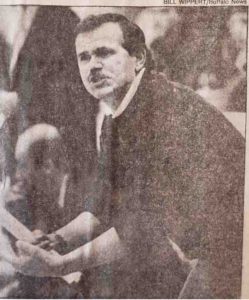
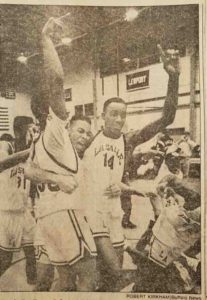
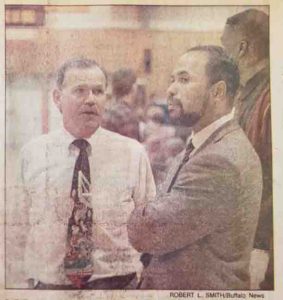
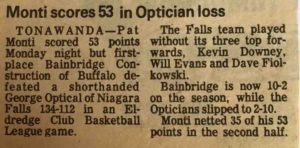
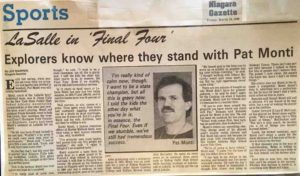
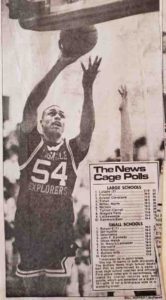
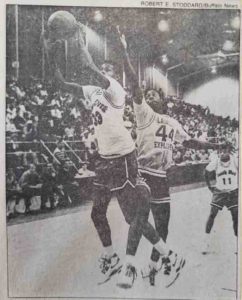
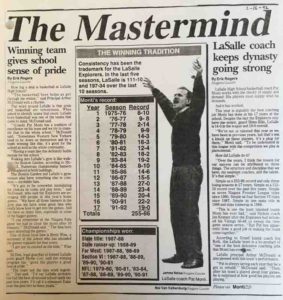
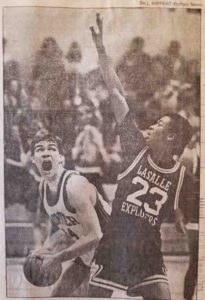
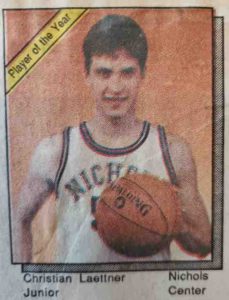
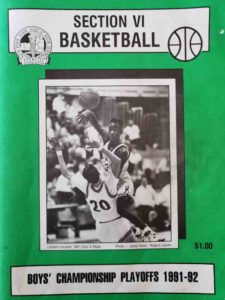
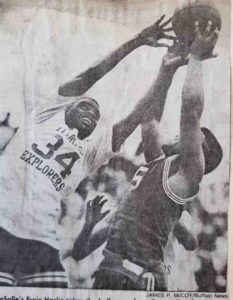
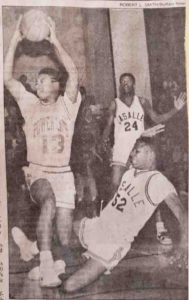
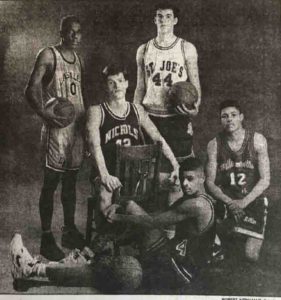
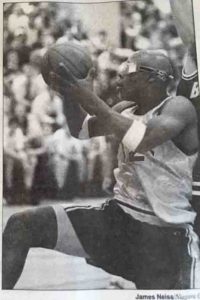
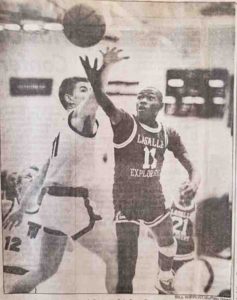
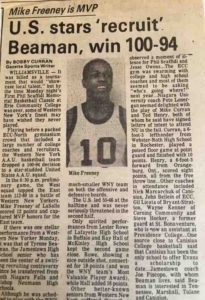
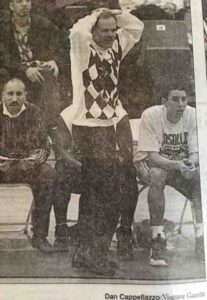
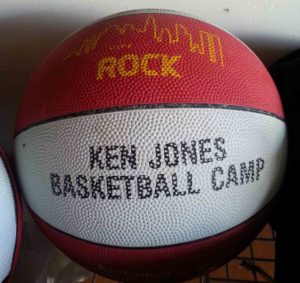 The first
The first 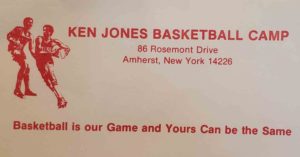 “Basketball is our game and yours can be the same,” was the signature quote of the Ken Jones Basketball Camp – the camp run by Dr. Kenneth Leon Jones, my first high school basketball coach. He told us students more times than I can remember, “I’m a student of the game!” He ate, slept and breathed the great game of basketball. Our basketball program at
“Basketball is our game and yours can be the same,” was the signature quote of the Ken Jones Basketball Camp – the camp run by Dr. Kenneth Leon Jones, my first high school basketball coach. He told us students more times than I can remember, “I’m a student of the game!” He ate, slept and breathed the great game of basketball. Our basketball program at 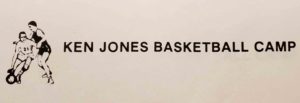 I’ll point out here that my perception of attending the camp as an ‘in’ to get on the Varsity team was a flawed way of thinking. There were several peers who attended the camp and didn’t make the team during those years. For any prospective players or parents reading this, it’s very important for kids with aspirations of playing sports to understand that spots on their school’s roster should be, and must be, earned. Spots on the roster should be awarded based on skills and preparation – not some form of favoritism or partiality – both of which do happen in the real world at workplaces later in life.
I’ll point out here that my perception of attending the camp as an ‘in’ to get on the Varsity team was a flawed way of thinking. There were several peers who attended the camp and didn’t make the team during those years. For any prospective players or parents reading this, it’s very important for kids with aspirations of playing sports to understand that spots on their school’s roster should be, and must be, earned. Spots on the roster should be awarded based on skills and preparation – not some form of favoritism or partiality – both of which do happen in the real world at workplaces later in life.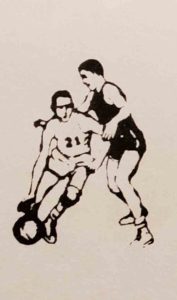 The Ken Jones Basketball Camp was a ‘teaching’ camp. In the early 1990s it was held at
The Ken Jones Basketball Camp was a ‘teaching’ camp. In the early 1990s it was held at 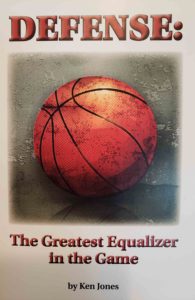 It was a very ‘organized’ style of basketball they taught us there – very different than the ‘street-style’ we played in Buffalo which involved mostly, “going up strong to the ‘hole’,” and usually watching your teammates dominate the ball on offense while everyone else stood around watching – ‘isolation’ basketball. As I was going into the camp looking to become a much better offensive player, I was very much surprised by the amount of time we spent on defensive principles and fundamentals.
It was a very ‘organized’ style of basketball they taught us there – very different than the ‘street-style’ we played in Buffalo which involved mostly, “going up strong to the ‘hole’,” and usually watching your teammates dominate the ball on offense while everyone else stood around watching – ‘isolation’ basketball. As I was going into the camp looking to become a much better offensive player, I was very much surprised by the amount of time we spent on defensive principles and fundamentals.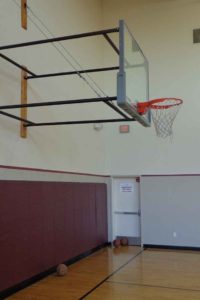 Afterwards, it would take hours and hours perfecting those fundamentals, and then learning how to use them in actual competition. This is the actual “development” – something that takes time, focus and commitment. When I look back on those years, I also realize that I was also developing on my own. In a game like basketball, if you want to play at the highest levels, you have to not only develop yourself personally, but you also have to figure out how to coalesce and build chemistry with the group of players you’re going to be playing with in competition.
Afterwards, it would take hours and hours perfecting those fundamentals, and then learning how to use them in actual competition. This is the actual “development” – something that takes time, focus and commitment. When I look back on those years, I also realize that I was also developing on my own. In a game like basketball, if you want to play at the highest levels, you have to not only develop yourself personally, but you also have to figure out how to coalesce and build chemistry with the group of players you’re going to be playing with in competition.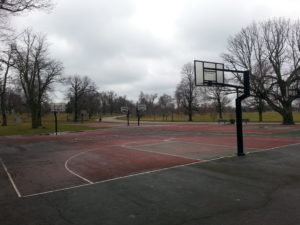 And again, not every family had the money to send their kids to camp which probably created some envy. Some kids wanted to play on the basketball team and didn’t for whatever reason. When you’re a player on a team, you don’t know how your classmates and peers are viewing you and your opportunities until you yourself are going through a hardship of some sort. This also underscores the importance of having the mental strength I discussed in part three of this series.
And again, not every family had the money to send their kids to camp which probably created some envy. Some kids wanted to play on the basketball team and didn’t for whatever reason. When you’re a player on a team, you don’t know how your classmates and peers are viewing you and your opportunities until you yourself are going through a hardship of some sort. This also underscores the importance of having the mental strength I discussed in part three of this series.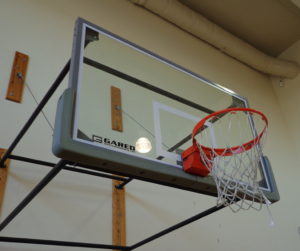 This article was originally the conclusion of the series titled the
This article was originally the conclusion of the series titled the 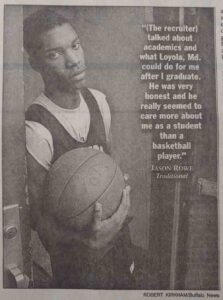
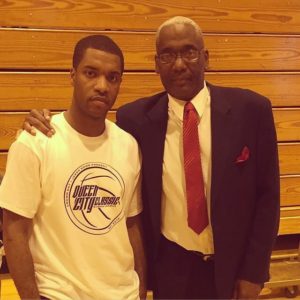 Jason Rowe: I was a ‘Merit’ and ‘Honor Roll’ student. If I wasn’t, I wouldn’t have been able to play. My parents instilled education in me from day one. My mother and father were constantly on me about grades. If my grades weren’t above a certain GPA, then I wasn’t allowed to play basketball. My father actually took me off the ‘Modified’ team at Traditional for half the season because my average was an 87% and not a 90% or better. So in no way shape or form would I say that Buffalo Traditional didn’t prepare me. No!!! My parents prepared me and instilled how important my education was.
Jason Rowe: I was a ‘Merit’ and ‘Honor Roll’ student. If I wasn’t, I wouldn’t have been able to play. My parents instilled education in me from day one. My mother and father were constantly on me about grades. If my grades weren’t above a certain GPA, then I wasn’t allowed to play basketball. My father actually took me off the ‘Modified’ team at Traditional for half the season because my average was an 87% and not a 90% or better. So in no way shape or form would I say that Buffalo Traditional didn’t prepare me. No!!! My parents prepared me and instilled how important my education was.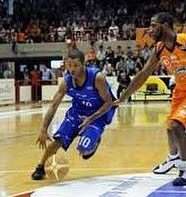 JR: It felt like home. I got injured at the ‘
JR: It felt like home. I got injured at the ‘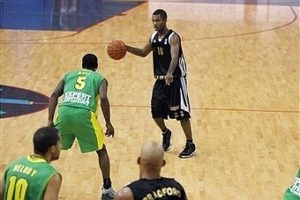 JR: I had family in Maryland so being away from home wasn’t an issue for me. The biggest issue for me was learning the point guard position because in high school we didn’t have any plays. In college now it was about game management – knowing what’s a ‘good’ shot, knowing what’s a ‘bad’ shot, and how to keep your teammates happy. There were so many things that I was lacking that I had to pick up very fast.
JR: I had family in Maryland so being away from home wasn’t an issue for me. The biggest issue for me was learning the point guard position because in high school we didn’t have any plays. In college now it was about game management – knowing what’s a ‘good’ shot, knowing what’s a ‘bad’ shot, and how to keep your teammates happy. There were so many things that I was lacking that I had to pick up very fast.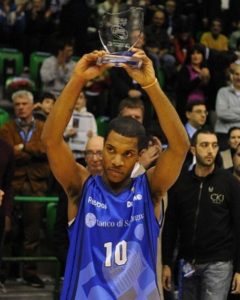
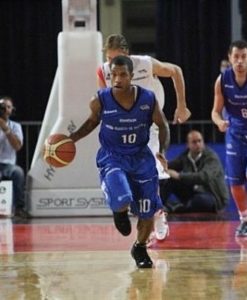 JR: Yes, for a very long time. For anyone who plays basketball long enough, that’ s going to be a dream – especially someone who studied it, watched it, and idolized players in the NBA.
JR: Yes, for a very long time. For anyone who plays basketball long enough, that’ s going to be a dream – especially someone who studied it, watched it, and idolized players in the NBA.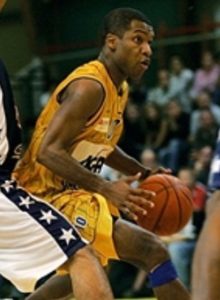 JR: It was through an agency. My college coach gave me a ton of agent letters – dozens and dozens of them and I literally went through all of them, researched them, and figured out which one worked best for me. I literally had an interview process with a couple of agencies and picked an agent that would best help me to further my career overseas and further my basketball career in general.
JR: It was through an agency. My college coach gave me a ton of agent letters – dozens and dozens of them and I literally went through all of them, researched them, and figured out which one worked best for me. I literally had an interview process with a couple of agencies and picked an agent that would best help me to further my career overseas and further my basketball career in general.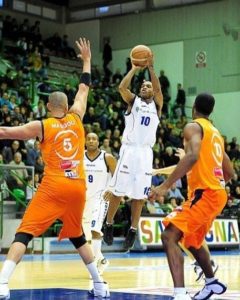 JR: I’m trying to remember – my senior year, I was around 25th in the country in scoring, 15th in assists, and 3rd in steals. In my junior year I was 2nd or 3rd in steals, and in my sophomore and senior years it was similar.
JR: I’m trying to remember – my senior year, I was around 25th in the country in scoring, 15th in assists, and 3rd in steals. In my junior year I was 2nd or 3rd in steals, and in my sophomore and senior years it was similar.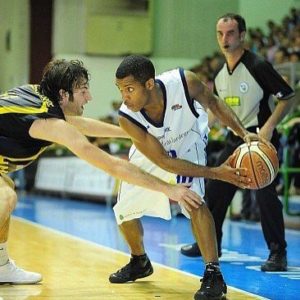 JR: There’s two sides to it. There’s the ‘wow-factor’, and there’s the competitive part. The wow-factor lasts about five seconds. I walked on the court and I remember looking at him. He’s not bigger than me – maybe an inch taller. His arms are super long and I remember looking at him and thinking, ‘Wow, this was once the best player in the
JR: There’s two sides to it. There’s the ‘wow-factor’, and there’s the competitive part. The wow-factor lasts about five seconds. I walked on the court and I remember looking at him. He’s not bigger than me – maybe an inch taller. His arms are super long and I remember looking at him and thinking, ‘Wow, this was once the best player in the 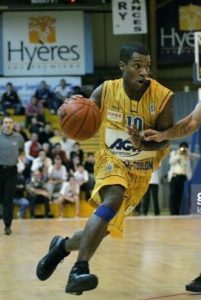
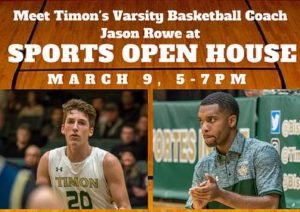 JR: I love it. To be honest, coaching wasn’t something I was looking forward to – I just wasn’t into it. I don’t like stress – the yelling and the screaming. I’m actually a calm coach, and my kids think it’s hilarious. I don’t yell and I don’t scream and yet I know how to get my point across without demeaning or belittling the kids. That works for me, and I relate to my kids the best way that I can and it’s working for our team. We’re having huge success this year. I’ve tried to take my experience from playing for four different coaches and meshing everything together to come up with my own coaching style.
JR: I love it. To be honest, coaching wasn’t something I was looking forward to – I just wasn’t into it. I don’t like stress – the yelling and the screaming. I’m actually a calm coach, and my kids think it’s hilarious. I don’t yell and I don’t scream and yet I know how to get my point across without demeaning or belittling the kids. That works for me, and I relate to my kids the best way that I can and it’s working for our team. We’re having huge success this year. I’ve tried to take my experience from playing for four different coaches and meshing everything together to come up with my own coaching style.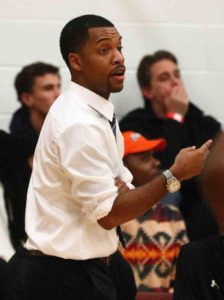 JR: I do training as well, and I’ve been fortunate enough to have a lot of hardworking kids. I think the era as a whole is more concerned about how people view them as opposed to actually getting into the gym and working. I think kids are worried about rankings and social media ‘likes’. Granted it’s a 20-year difference. We didn’t have a phone to let the world know we were in the gym working out, so their mentality is different because they have access to different things. My kids know that when it’s time for practice and training, they have to shut their phones off. When it’s training time give me an hour, and when it’s practice time, give me two hours. After that you can do you what you want to do, but lock into this and we’re fine.
JR: I do training as well, and I’ve been fortunate enough to have a lot of hardworking kids. I think the era as a whole is more concerned about how people view them as opposed to actually getting into the gym and working. I think kids are worried about rankings and social media ‘likes’. Granted it’s a 20-year difference. We didn’t have a phone to let the world know we were in the gym working out, so their mentality is different because they have access to different things. My kids know that when it’s time for practice and training, they have to shut their phones off. When it’s training time give me an hour, and when it’s practice time, give me two hours. After that you can do you what you want to do, but lock into this and we’re fine.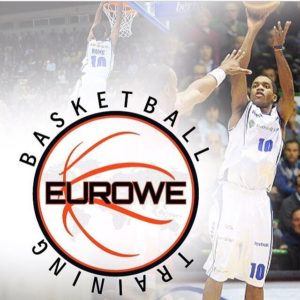 JR: No. I was doing training and I had BPS kids. What works for me is that I respect them and they respect me. Fortunately, I played basketball a long time and I can help them get to where they want to be in terms of this game. Because of that I’m able to keep their attention for an exceptional amount of time. I’ve gone where they want to go, so if was in the
JR: No. I was doing training and I had BPS kids. What works for me is that I respect them and they respect me. Fortunately, I played basketball a long time and I can help them get to where they want to be in terms of this game. Because of that I’m able to keep their attention for an exceptional amount of time. I’ve gone where they want to go, so if was in the 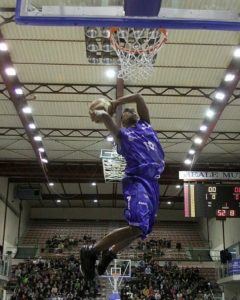 JR: Enjoy the moment. Enjoy the moment and take it seriously. Understand that every decision you make affects the next thing that you do. When I left school, it affected me possibly not being drafted which led to me going overseas. And I’m grateful to have gone overseas and to have played in fifteen countries, learned so many things, played against so many people. I was able to accomplish so many things and see the world with a basketball which is something I never thought would happen.
JR: Enjoy the moment. Enjoy the moment and take it seriously. Understand that every decision you make affects the next thing that you do. When I left school, it affected me possibly not being drafted which led to me going overseas. And I’m grateful to have gone overseas and to have played in fifteen countries, learned so many things, played against so many people. I was able to accomplish so many things and see the world with a basketball which is something I never thought would happen.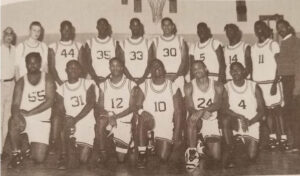
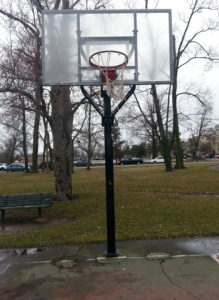 This article is the continuation of the series titled the
This article is the continuation of the series titled the 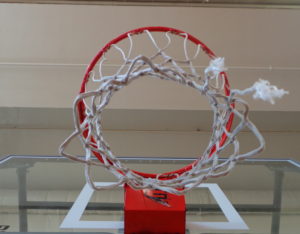 This post is the continuation of the series titled the
This post is the continuation of the series titled the 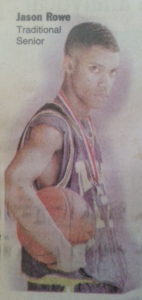 One of the key
One of the key 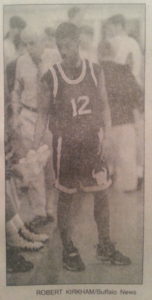 JR: It’s funny you should say that because that’s literally the story I was told. When I came home as a baby, there was a basketball hoop on the wall in my crib and my father used to pick me up and have me dunk the basketball as a kid.
JR: It’s funny you should say that because that’s literally the story I was told. When I came home as a baby, there was a basketball hoop on the wall in my crib and my father used to pick me up and have me dunk the basketball as a kid.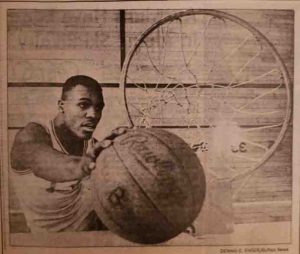 JR:
JR: 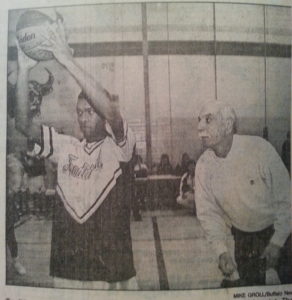 AD: Being at Traditional for middle school, what made you decide to stay for high school? Is that just what the students did there?
AD: Being at Traditional for middle school, what made you decide to stay for high school? Is that just what the students did there?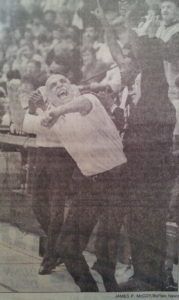 JR: Coach Cardinal was very honest when he would say, ‘I’m a gym teacher, and I don’t know much about basketball in terms of coaching.’ Because he was so open and honest, and didn’t try to hide that, it actually made us closer. He wasn’t lying and trying to be something he wasn’t. He was the most personable coach I ever played for because he had our backs and we knew that. In terms of
JR: Coach Cardinal was very honest when he would say, ‘I’m a gym teacher, and I don’t know much about basketball in terms of coaching.’ Because he was so open and honest, and didn’t try to hide that, it actually made us closer. He wasn’t lying and trying to be something he wasn’t. He was the most personable coach I ever played for because he had our backs and we knew that. In terms of 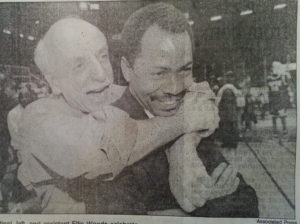 JR: Ellis Woods, who was the coach’s best friend. They were cut from the same cloth, and were very open and honest with us about what they did and didn’t know. We would run through a brick wall for both Coach Cardinal and Coach Woods. They could relate to us.
JR: Ellis Woods, who was the coach’s best friend. They were cut from the same cloth, and were very open and honest with us about what they did and didn’t know. We would run through a brick wall for both Coach Cardinal and Coach Woods. They could relate to us.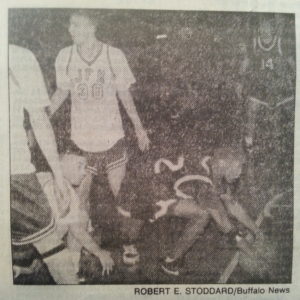 JR: Our goal was to win the state championship. It was my personal goal and the team’s goal as well. When you have that goal, you get that ‘tunnel vision’! We used to say, ‘Get to Glen. Get to Glen. You’ve got to get to Glens Falls.’ That’s where the State Championship was held. For some time the Buffalo teams were having a hard time getting past the Rochester teams in the Far West Regional. We wanted to get past Rochester. For us, we had a lot of confidence because we played against the top notch competition in Buffalo. We were confident enough to get past Buffalo’s competition and we just had to beat the Rochester teams. It was step by step.
JR: Our goal was to win the state championship. It was my personal goal and the team’s goal as well. When you have that goal, you get that ‘tunnel vision’! We used to say, ‘Get to Glen. Get to Glen. You’ve got to get to Glens Falls.’ That’s where the State Championship was held. For some time the Buffalo teams were having a hard time getting past the Rochester teams in the Far West Regional. We wanted to get past Rochester. For us, we had a lot of confidence because we played against the top notch competition in Buffalo. We were confident enough to get past Buffalo’s competition and we just had to beat the Rochester teams. It was step by step.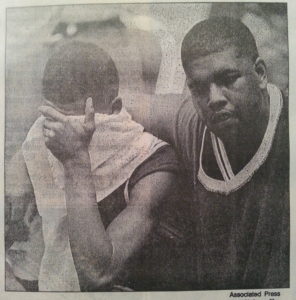 JR: Everything. I think what we lacked is what they exploited. They had the structure we didn’t have. They were big and physical, and they just outworked us. I cried a lot after those two games. I shed a lot of tears. They were well deserved victories for them.
JR: Everything. I think what we lacked is what they exploited. They had the structure we didn’t have. They were big and physical, and they just outworked us. I cried a lot after those two games. I shed a lot of tears. They were well deserved victories for them.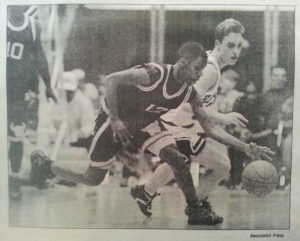 AD: So you guys beat
AD: So you guys beat 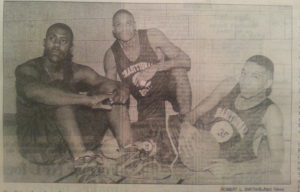 AD: Your team went on to suffer a heartbreaking
AD: Your team went on to suffer a heartbreaking 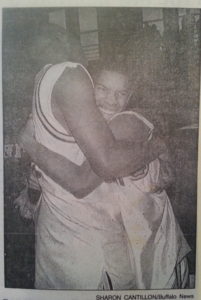 JR: Yes, that was the year that we won. It was fun, but it was also bitter sweet, because I remember when we won a lot of us were crying tears of joy, but we also understood that it was over – our run was over and that it was our last game together. Our team was very, very close.
JR: Yes, that was the year that we won. It was fun, but it was also bitter sweet, because I remember when we won a lot of us were crying tears of joy, but we also understood that it was over – our run was over and that it was our last game together. Our team was very, very close.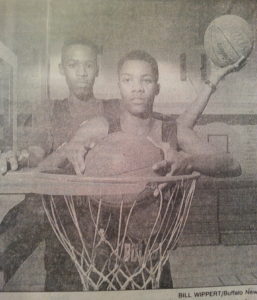 JR: I had two personal goals going into high school; I wanted to get 1,000 assists and I wanted to win the
JR: I had two personal goals going into high school; I wanted to get 1,000 assists and I wanted to win the 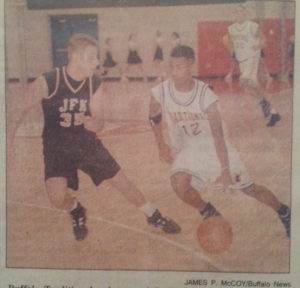 AD: In your junior season, the
AD: In your junior season, the 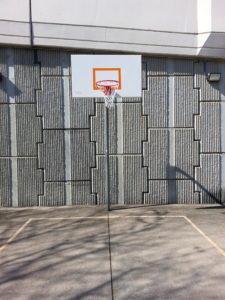 The first
The first